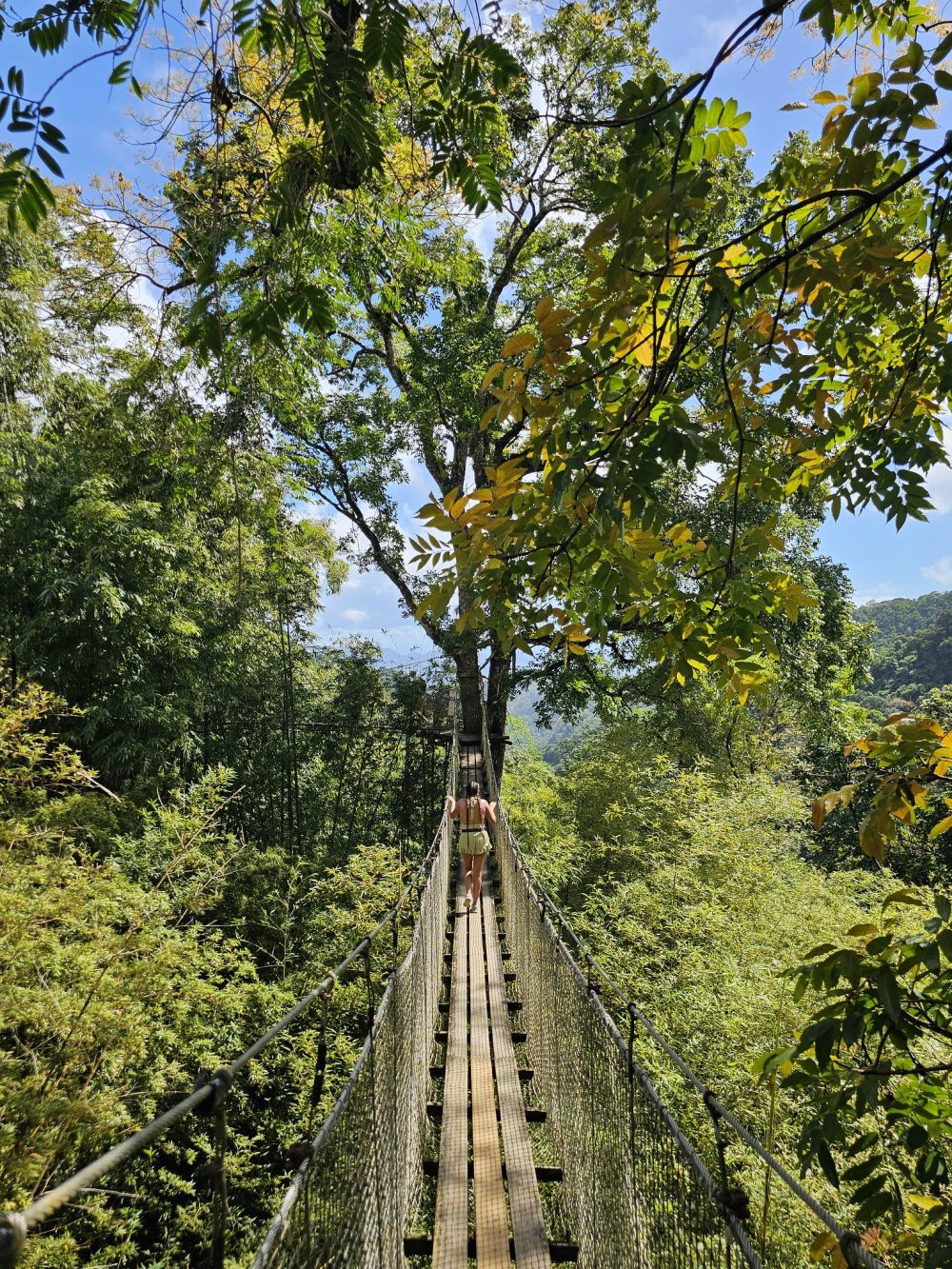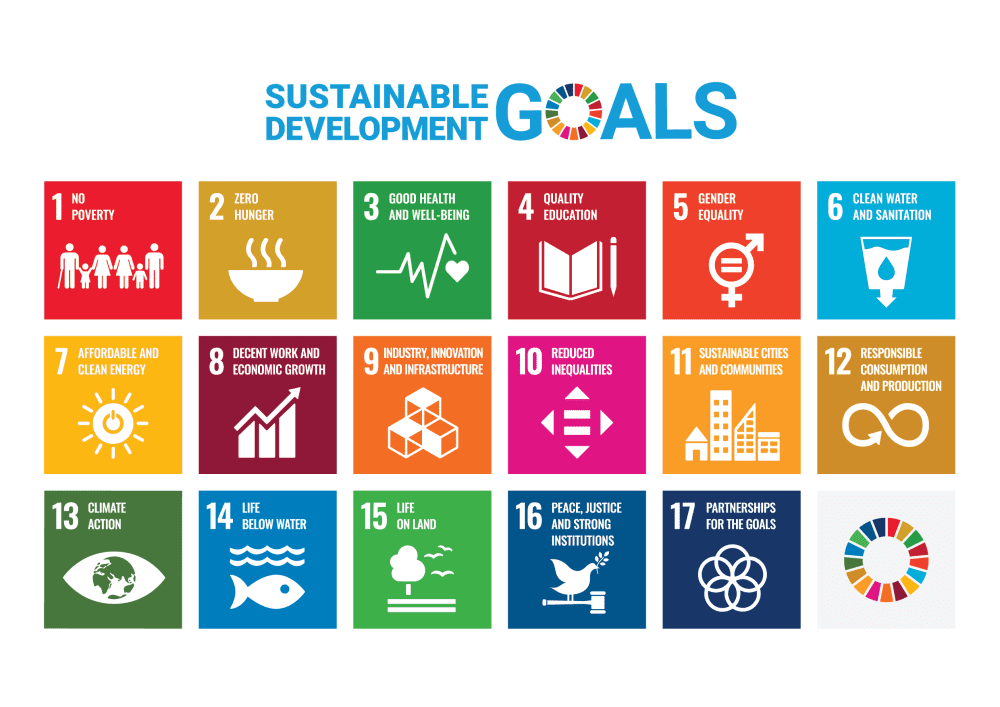Integrating Sustainability into Your Faculty-Led Program Curriculum

Welcome to our resource page, which has been designed to empower faculty and staff to lead sustainable study abroad programs. Whether you’re planning your first faculty-led program or are looking to enhance your existing itinerary and curriculum, this platform offers practical guidance, resources, best practices, and brainstorming prompts.
Getting Started
It may not initially seem like the topic of your program is inherently relevant to themes of sustainability; however, as the United Nations Sustainable Development Goals further down on this page illustrate, sustainability isn’t only about the natural environment!
The UNC Charlotte Strategic Plan
The 2021-2031 Strategic Plan highlights multiple Guiding Commitments that tie closely with the topic of sustainability:
- Discovery, Innovation, and Creativity: Engaging in inquiry to generate new knowledge, modes of expression, understanding, and solutions to society’s most significant challenges.
- Community Engagement: Collaborating with local, state, national, and global partners to prepare our students to be engaged and effective citizens and to promote the common good through research and service that addresses a broad range of social needs.
- Environmental Stewardship: Pursuing sustainability and environmental justice to protect the planet through education, research, and stewardship of scarce resources.
The United nations sustainable development goals
If you’re not already familiar with the seventeen United Nations Sustainable Development Goals, you can find them below. These “SDGs” were included in the 2030 Agenda for Sustainable Development, and they were adopted by all UN Member States in 2015. Each individual goal is quite broad, which permits many opportunities to integrate one or several SDGs within your study abroad curriculum.

Brainstorming ideas
The expanding boxes below represent easy-to-implement ideas that intersect with each of the seventeen SDGs across five overarching topic areas. Some ideas might fit nicely into multiple categories, so please feel free to click around!
Partnership
This category is pretty straightforward, as it only relates to SDG #17: Partnership for the Goals.
- Partner with local leaders in the host community. This could include anything from inviting a guest lecturer to visiting with a local politician, organization, or business to discuss challenges unique to their community. This partnership doesn’t exclusively have to revolve around sustainability, either. For example, a marketing program might schedule a visit with a local Tourism Board to discuss the evolution of their marketing strategy. Beforehand, students could be given a lesson on the challenges of over-tourism so that they could ask more pointed questions of the speaker, which would prompt mutual knowledge sharing of ideas and best practices.
- If possible, organize homestays for the students, even if only for a couple of days. Students on faculty-led programs are less likely to break out from their “American bubble,” so homestay families provide a unique opportunity for participants to engage more richly with the host culture.
Peace
Just like the above, this category is also pretty straightforward, as it relates only to SDG #16: Peace, Justice, and Strong Institutions.
- Most study abroad destinations include museums or memorials surrounding previous eras of war, strife, or instability. While visiting these sites can more broadly help students understand the cultural context of a given society, such a visit can also prompt reflection surrounding the factors that may have led to conflict. This can provide a robust opportunity for students to then discuss how societies resolve conflict, rebuild in the aftermath, and continue to make progress.
- Meeting with local policymakers and community leaders (or touring a legislative building) can help students better understand the host culture through a political lens. This can also initiate a discussion surrounding bureaucratic barriers to change and the many negotiations and compromises that culminate in the passing of a law.
People
This topic area covers SDGs #1-5: No Poverty; Zero Hunger; Good Health and Well-Being; Quality Education, and; Gender Equality.
- Building inclusive programs is absolutely crucial to ensure that all students have access to the wonderful, life-changing benefits of studying abroad. UNC Charlotte’s Office of Disability Services can connect you with an expert in this topic, but we also have some suggestions. Be sure to convey the program’s expectations during recruitment; for example, if the program itinerary includes lots of walking (especially in a hilly landscape, at a high altitude, or in a humid/hot climate), you’ll want to be very clear with the students about this fact. “Whispers” – or portable microphones and headsets – can be handy when giving tours or conducting meetings in busy, public spaces, as hard-of-hearing students may struggle to distinguish the speaker’s voice from the noise of the crowd.
- Designing a low-cost program (while much easier said than done!) can also help open your study abroad opportunity to more students. This could include: designing and implementing the program without the assistance of a third-party provider; utilizing public transit for the length of the program; selecting a non-traditional destination with a lower cost-of-living; choosing a destination with a shorter flight time, which can sometimes translate to a lower out-of-pocket student cost for airfare, etc. If you’d like to discuss this with our office in more detail, please reach out to the Associate Director or Faculty-Led Program Coordinator for tailored suggestions for your program. Of course, we never want to cut costs at the expense of the student experience – it can be challenging to strike a balance!
- Use public transit to navigate your host city, when possible. Public transit helps promote economic mobility, and it can also help students reduce their carbon footprints. If feasible, walking also empowers students to take more agency over their health in an environmentally friendly way.
Planet
This topic area covers SDG #6, as well as SDGs #12-15: Clean Water and Sanitation; Responsible Consumption and Production; Climate Action; Life Below Water, and; Life on Land.
- Forego printed textbooks or materials for your program; if students are asked to keep a journal about their experiences, this might be done digitally from their phones.
- For group meals, choose a “flexitarian” destination. We want students with all dietary needs to feel as comfortable as possible abroad, so it can help when faculty leaders consider that many students might avoid gluten, shellfish, certain meats, eggs, or dairy products. We don’t want to deprive students of options, but leaning toward a more vegetarian menu can usually help more students feel accommodated, while also being the more sustainable choice.
- Choose eco-friendly accommodations (when economically feasible), or otherwise encourage students to consume fewer resources in their home-away-from-home. In a hotel, students may be inspired to forego housekeeping and laundering services, take shorter showers, and avoid blasting the air conditioning. In a longer-term arrangement, students might be encouraged to hang-dry clothes in lieu of using a dryer, cook meals with local and in-season ingredients, and embrace public transit over taxis and Ubers.
- Share local consumption practices. Some destinations, such as South Africa, may require load-shedding or rolling blackouts to manage an overtaxed energy infrastructure. Other destinations may have relatively scarce water resources or limited access to a diverse food supply. While we certainly don’t want to exacerbate culture shock for our students, this can be a great opportunity to build awareness about resource consumption around the world. Some locations may provide special privileges for tourists and hotel guests, so students should at least be made aware of these privileges when travelling.
Prosperity
This topic area covers SDGs #7-11: Affordable and Clean Energy; Decent Work and Economic Growth; Industry, Innovation, and Infrastructure; Reduced Inequalities, and; Sustainable Cities and Communities.
- Share local consumption practices (this was mentioned on the “Planet” tab, but it applies here, too). Some destinations, such as South Africa, may require load-shedding or rolling blackouts to manage an overtaxed energy infrastructure. Other destinations may have relatively scarce water resources or limited access to a diverse food supply. While we certainly don’t want to exacerbate culture shock for our students, this can be a great opportunity to build awareness about resource consumption around the world. Some locations may provide special privileges for tourists and hotel guests, so students should at least be made aware of these privileges when travelling.
- Schedule a visit with a local company (or several) to introduce students to local economic challenges or success stories.
Resources
“Advancing the United Nations Sustainable Development Goals Through Education Abroad,” The Forum on Education Abroad (2021). A series of broad suggestions and guiding principles for incorporating the SDGs into a faculty-led study abroad program. This is a great document to use as a starting point!
“Global Code of Ethics for Tourism,” The United Nations (2020). A set of principles on responsible and sustainable tourism; this code is quite comprehensive across its ten articles, but it could contribute to a great pre-departure reflective assignment for students.